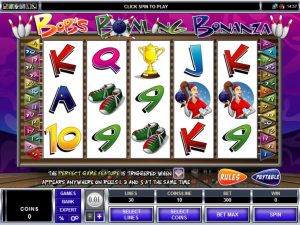Gambling games have been one of the favorite past times for quite some time. The premise is that all you need is a little bit of luck and skill, and you can make some profit while having a good time. The demand for games is extremely high, and the top players in the industry are constantly competing in providing their users with new and interesting gambling games to play, as well as with bonus offers like the Sportingbet Bonus or other promotional codes for poker, blackjack or whatever casino game first comes to mind. Here’s a breakdown of the typical game development process.
- Identify the genre.
One rule of thumb is to go with an already popular game and add a new twist to it. The majority of successful new table games are variations of baccarat, blackjack or poker. They typically have a new rule expanding on a classic and an interesting side bet. Slots have a lot of potential as well because they can offer a variety of enticing features and bonus payouts. One thing to avoid is trying to combine games. It is difficult to find a player who likes and is skillful at both of these two combined games, so it is safer to go with just the one.
- Name the game and keep the rules simple.
This can make or break the game. If the game name is too complicated, strange and not easy to remember, no one will want to play it. The players must also understand the rules easily, and it should not take them longer than 30 seconds to do this. If the game is difficult to understand and the rules are not clear, they will not be interested in playing.
- Calculate the house edge.

This is one of the most difficult things to do when making a gambling game and it is best if a skilled mathematician is the one doing this job. It is important to have in mind that games having odds in the player’s favor will not last long, and if the odds are stacked against the players, and they lose the money quickly, they will be discouraged from playing. And if the players feel cheated, the game can sink pretty quickly.
For skill games, such as poker, odds are to be calculated with regards to hypothetical skill levels. For chance games, odds are easier to calculate because no variations of skill are to be taken into consideration. Games should typically have a 3% to 5% house edge (it all depends on the type of the game, but the house edge should always be under 5%).
- Design and develop.
It goes without saying that this is the most crucial part of the process. Why will this game attract the players more than other similar ones? Some games offer massive jackpots, while others have exciting and unique designs, recognizable names, amusing features and high entertainment value.
Depending on the type of the game, some gambling game prototypes are usually built with Adobe Director or similar tools, the code is developed in C or C++, and the artwork using Adobe Photoshop, Autodesk 3ds Max or LightWave. The design should be enticing and eye-catching because the aesthetics of the game are usually what draws people to them.
- Put the emphasis on winning.
Everything about the game should emphasize winning, hitting the jackpot, achieving a game milestone or getting the big top award. This makes the players feel that they have a good chance of winning. The game terminology should stress bonuses, winnings, money, luck, etc. The game should provide the players with feedback when they achieve something important during the game because giving feedback improves the game’s chances of success.



